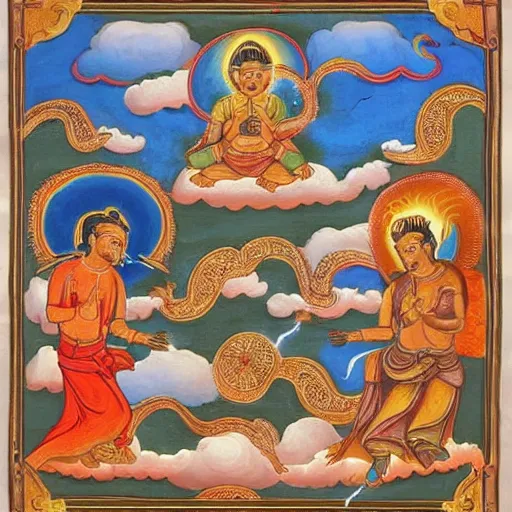Self vs No-Self: Are They Really Opposing Ideas ?
Abstract: Most Abrahamic and Indian traditions emphasize realizing the "Self" nature of the individual. On the contrary, Buddhism thrives to realize "No-Self" nature. They seem to be contradictory in their definitions and names. But we learnt that we share the same human body, mind and energy system despite the religious background we come from. Then there should not be two types of liberations, and this article brings some light and wisdom by demystifying these concepts, that clears up the confusion.
Gautham Buddha's teaching has flourished throughout the Asia, reaching out to the lands of far east. Some people even fight over the birthplace of Buddha, proclaiming he was originally from their home countries (i.e. Sri Lanka and Iran) even by presenting historical accounts and archeological evidences. However Buddha's main teaching is to let him born within ourselves, turning our hearts to be the ground where a lotus can bloom. Turning our gross minds to a Buddha mind. Gautham Buddha's teaching was very unique in a specific way. Instead of calling it another "Self Realizing Venture", he gave it a different name. "No Self" ! How is this different from other teachings ?
Buddha has undergone all possible austerities any Hindu yogi could ever imagined. He attained the same meditative absorptions all his teachers did. From formed/formless absorptions to clear-light and form there to higher samadhis. But none of these satisfied his thirst, he sensed the traces of suffering. After several years of hardship, he abandoned further trying. He could have also simply lived assuming "I am nobody / I am no mind / Not even that"; in fact there were such bogus spiritual teachers at that time, misleading people into a false spiritual awakening (Read about him here). Buddha was looking for liberation not only for him, but also for these people. From his initial Samadhis, he was able to eradicate few fetters, not the most difficult ones though i.e. conceit. Conceit is not pride ! This is one of the misconceptions we have. The true meaning of the conceit is the sense of "I ness", the projection of "I am/Me" in the external world. It is more complicated than the "Self Pride".
Even the highest meditative absorption just before the incarnation (separation of mind-body link) could not solve this problem for Buddha. He suffered from this identification. Then he closely examined what causes this problem and he realized, the existence of "I am/Me" is witnessed through his five senses. Not only that, the world where the "I ness" is witnessed happens with respect to his very physical body. No matter which meditative absorption he was immersed in, which dynamic Sadhana he was doing, his conceit was there. He realized that the five senses can never be free with his individuation, with his body. This individuation can only be decoupled by letting the known person in the physical body gone. Then he let his accumulated personality, both mundane and spiritual characters disappear. At the beginning, his witnessing quality helped him to distance himself from the five senses. Later, he let the witnessing also disappear. On a full moon (full moon is also necessary to go into deeper Samadhi states), his troublesome character left his body once and for all. Instead a fully incarnated soul descends down to his very body. This resulting energy change in him not only transcended his five senses, but also brought his awareness into his heart center. No more mind dwelling.
When he was liberated from all the identifications, conceit, he was unable to project his mind any longer to any outside object. He observed them, but no projection. He identified them, but no sense of "I ness or Me" there. Hence no bouncing back of "I ness" from the outside object towards him either. He was free from "any traces of self". Therefore he named it "No Self" (Most Buddhists don't know this story, except the Tantrics) !
Is it different to other traditions ? In Abrahamic traditions, we often encounter these phrases:
Chose the path of love.....
Let "yourself" go....
Then the incarnation happens....
(We've heard how Jesus was in isolation)
Only worship god alone.....
Without any companion.....
(If there is a companion, our mind projects ourselves to it and bounces back from it)
The same realization was interpreted in many ways. To the Abrahamic and Vedic traditions, this means losing individual self and letting "true self" to be born or found within us. To Buddha, this means being free from the suffering of individual conceit, being free from the self image seen at outside world. Hence he gave it a more meaningful name. It was given a related name to his very suffering, "No-Self".
~ From a conversation with the late master D.A. Jayasuriya ~




.png)
Comments
Post a Comment